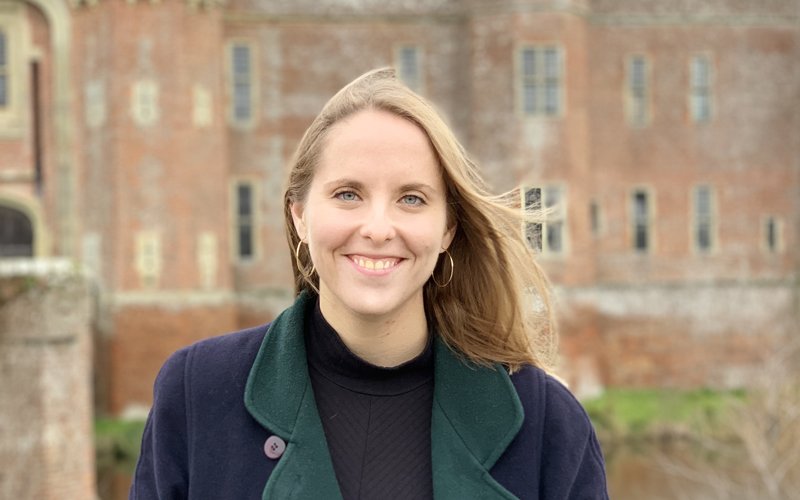
Rebecca Love speaks about her work on a new app to help women manage the menopause
Menopause is a time point in a woman’s life where you can fundamentally change the trajectory of her lifelong health.
Rebecca Love
A new app which helps women to manage the menopause was soft launched last month in collaboration with Mumsnet.
Stella is the first product by Vira Health, a company which was co-founded in 2019 by Gates Cambridge Scholar Rebecca Love.
Stella offers women relief from the most common symptoms of menopause, including sleep disturbances, hot flushes, incontinence and mood changes. Women have access to a personalised treatment plan that uses behavioural science to encourage lifestyle changes to improve symptoms and long-term health. There is also personalised support from a human health coach within the app.
In addition the app has a library of informative articles, case studies, recipes designed for menopause health, meditations to relieve stress and anxiety and expert live sessions, where women can ask questions.
Rebecca [pictured above] comes from an entrepreneurial family background and started Vira Health after finishing her PhD in behavioural epidemiology at Cambridge on inequalities in children’s physical activity and interventions. However, she realised eventually that an academic career was not for her. “I am keen to be as close to the people I’m trying to help as possible. I am also too impatient for the long publication cycles,” she said. Part of that realisation came as a result of her involvement in the Gates Cambridge community. Rebecca was President of the Scholars Council and says meeting Gates Cambridge Scholars who were active in so many areas and willing to take risks had a big impact on her.
Healthtech
On graduating she worked for the London mayor’s office on its childhood obesity taskforce, and for the World Health Organisation. She became excited by the innovation happening in healthtech in London and it was when she met Andrea Berchowitz that the seeds of Vira Health and Stella were planted.
Andrea had worked at McKinsey in South Africa and then the UK specialising in women’s health before moving to The Bill and Melinda Gates Foundation. Rebecca shared Andrea’s interest in women’s health and particularly the positive impact better menopause care can have on women’s longer-term health.
“Menopause is a time point in a woman’s life where you can fundamentally change the trajectory of her lifelong health. It seems outrageous that we have not been focusing on this before. Stella is about getting women the relief and support they need for immediate symptoms as well as setting them up for the best brain, bone and heart health in later life,” says Rebecca.
She and Andrea spent the next six months talking to women about their experience of the menopause and about stigma around the subject as well as to medical experts. Rebecca says those conversations really opened her eyes to what women were suffering and how a combination of ageism and sexism had prevented open conversations about the problems. They decided to centre Vira Health’s approach on digital therapeutics and long-term health. They raised a substantial round of venture capital money in autumn 2020 and have since hired a team of 10.
Fortunately, Rebecca thinks things are changing with regard to women’s health generally and that Vira Health can contribute to the next wave of support for women. “Every woman’s menopausal experience is different. The symptoms she deals with are unique and fluctuate, she has her own preferences around treatments,” says Rebecca [2015]. It also comes at a time when women may have teenage children and/or caring responsibilities for parents. They may also be feeling increasingly invisible in a society that still judges women on their youthful looks and on their fertility. Rebecca hopes the Stella app will help change people’s mindsets about the menopause. “We want to reframe it as a new beginning, as a new phase in life that can be better than the last one,” she says.
Long-term effects
For the Mumsnet soft launch, women were placed onto a therapeutic pathway, tailored to the menopausal symptoms that they struggled with most. If a woman is suffering from insomnia, for instance, her programme will use proven cognitive and behavioural techniques to improve her sleep routine and, in turn, duration and quality. Women also get matched with a personal health coach who helps them to master the habits needed to get relief and stay healthy.
“Having a real human to problem solve with whenever they need it is very important; having that empathy and back and forth really helps,” says Rebecca. “For digital products to work successfully and build engagement, they need to show empathy and a human side.”
Rebecca adds that the app can address long-term health benefits associated with menopause symptoms. For instance, insomnia associated with hormonal changes and night sweats can become a routine problem which is hard to fix and not sleeping is associated with Alzheimer’s Disease. “US research shows two thirds of people with Alzheimer’s are women and menopause is a trigger for brain ageing. Better care of menopausal women will help reduce that,” she says.
Rebecca is hopeful about the future. She says: “Venture capitalists and others are opening up to the idea that there is a huge market opportunity for women’s health products that work that women want to buy. Developing a product that matters to women and has such potential to improve womens’ long-term health is very exciting.”
The official public launch of Stella will follow in the summer in partnership with menopause clinics and workplaces.












